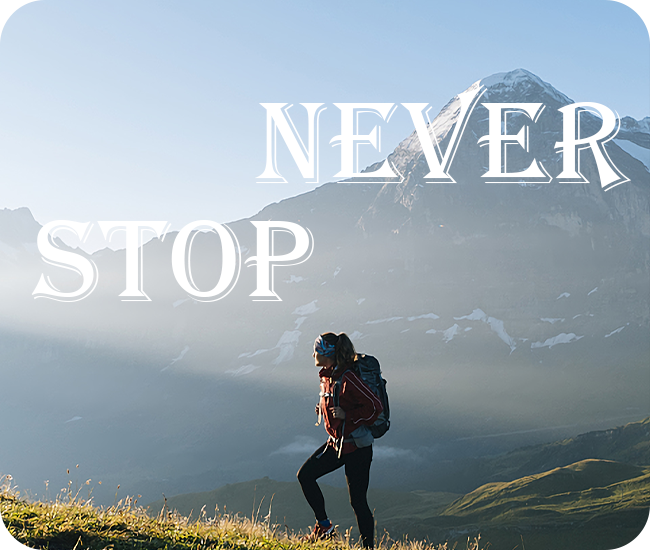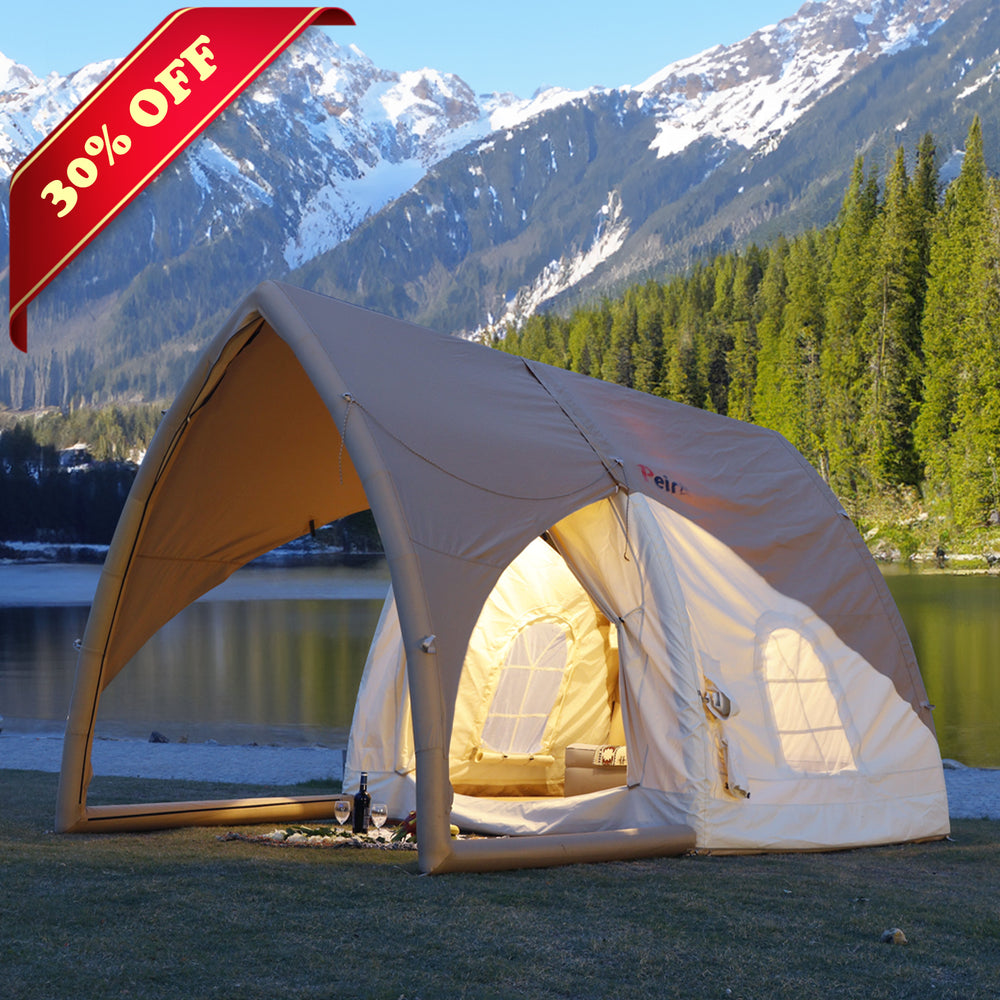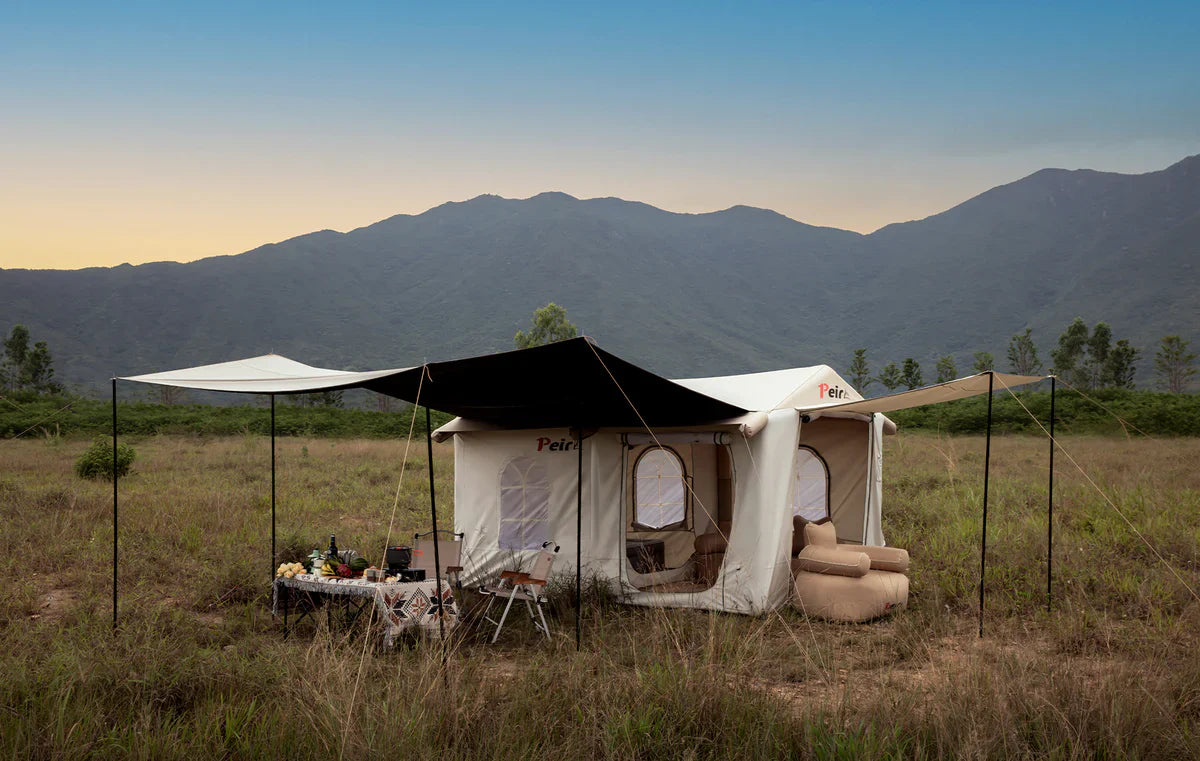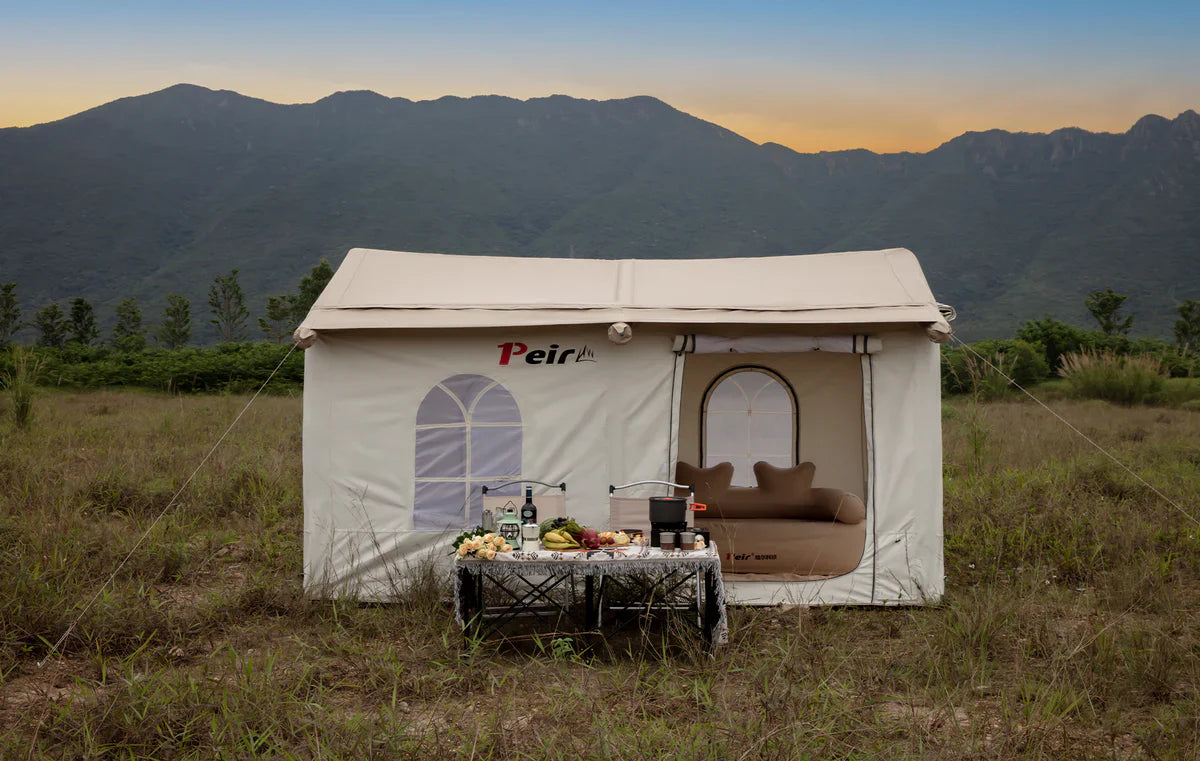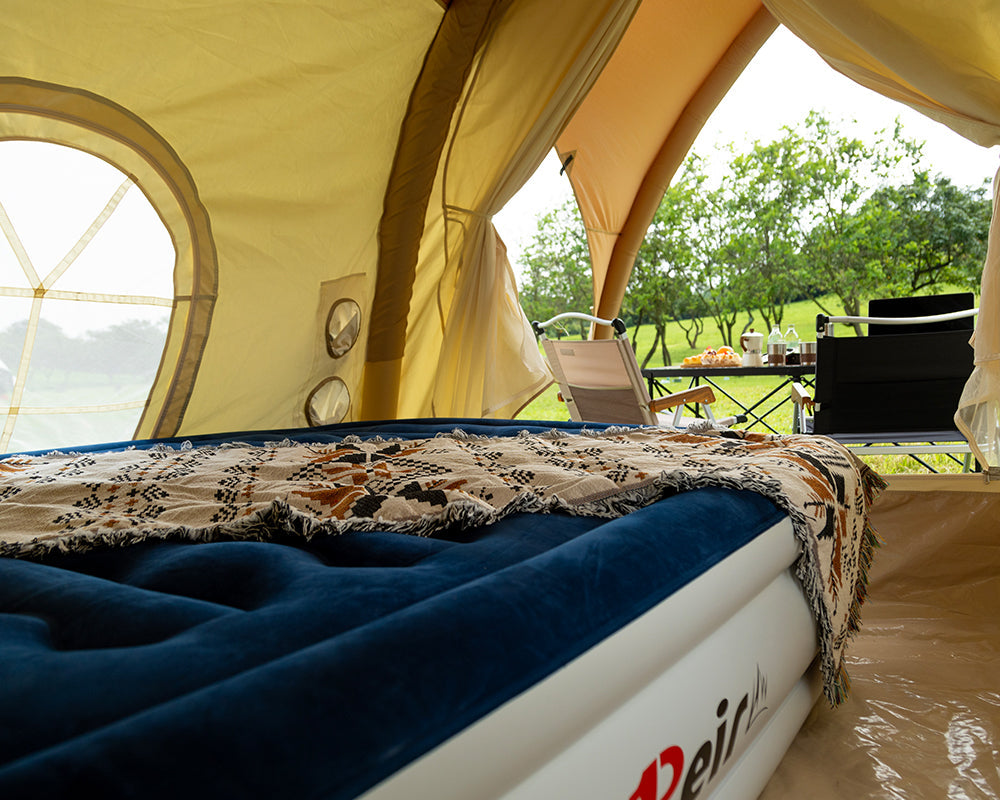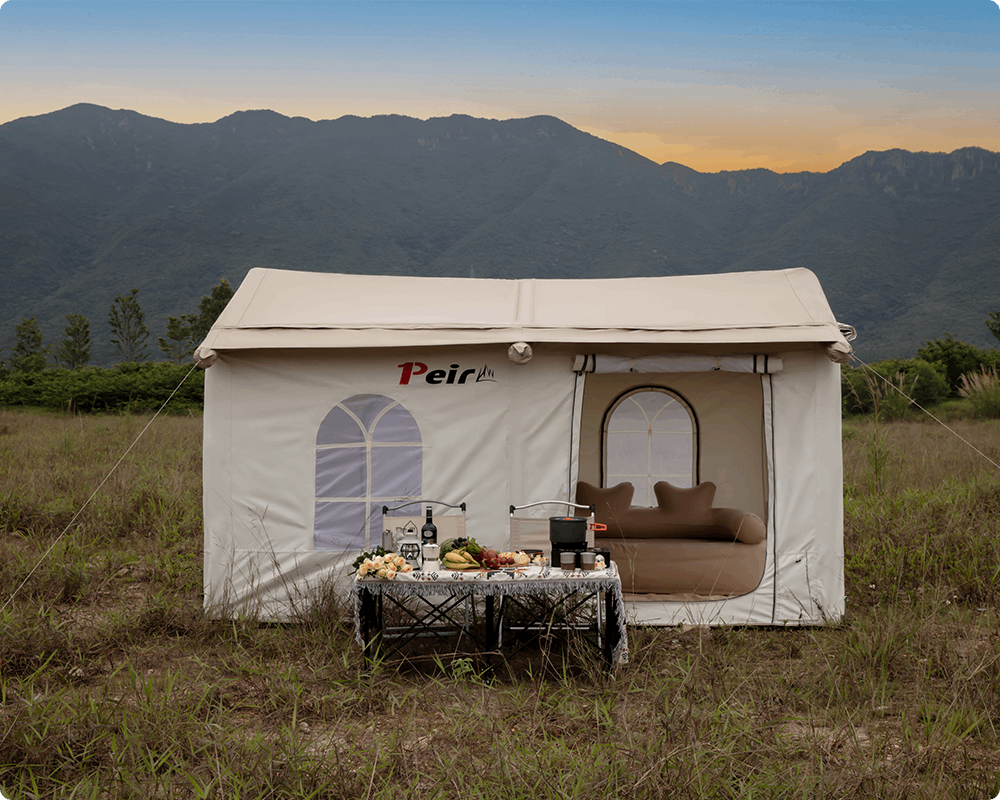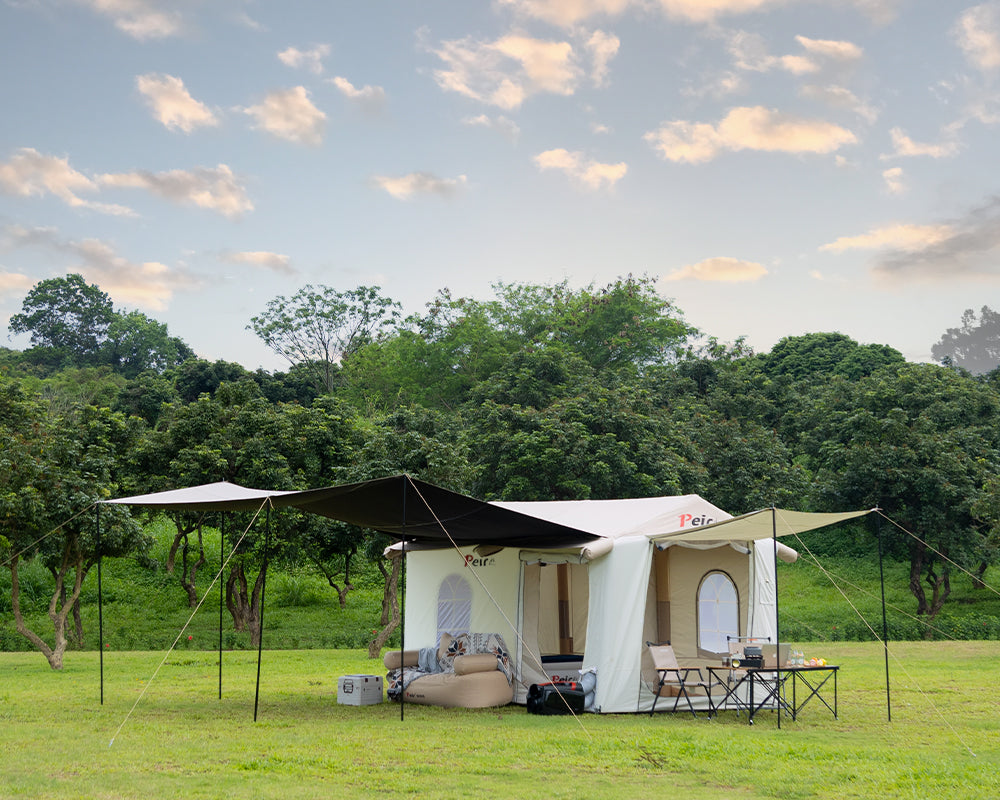Disrupting our normal sleep patterns to spend the night in an unfamiliar environment could lead to some tossing and turning through the night. So the next time you’re packing your overnight bag to head out on a camping adventure, bring along some of our favorite tips and tricks to help you sleep a little easier.
Once I cocooned myself into my sleeping bag, I lay awake listening to the sounds of frogs croaking and bugs buzzing. I was on high alert and I couldn’t get comfortable. Yet I so badly wanted to appreciate the quiet atmosphere and the glittering stars overhead. After all, people sell this experience in the form of a white noise machine. It must be soothing and peaceful, right?
Falling asleep under the starry night sky can be relaxing, romantic, and rejuvenating. But unless you’re going glamping, spending a night sleeping on the ground in the great outdoors could mean getting a less than great night’s rest.
If you’ve ever wondered why your outdoorsy friends go on about the joys of camping then this is for you. If you’ve come close to hiking back to the carpark in the middle of the night because sleep was eluding you, then read on. We truly believe that sleeping in a tent, with just a few millimetres of material between you and nature, is for everyone. But you should probably read – and put into practice – these 23 tips first.
Follow These Sleeping Tips for Even Better Camping
With a few more camping trips under my belt, I learned how to fall asleep comfortably. Whether you’re a seasoned camper or a first-timer, here are our 10 best sleeping tips for a restful night when you’re camping in a tent this summer.
1. Add comfort and warmth with quality sleeping gear
Just as it’s uncomfortable to sleep on an old, springy mattress, it’s uncomfortable to sleep in a thin, tattered sleeping bag. Take the time to decide which style sleeping bag is right for you. And remember, this sleeping setup is going to have a serious impact on how well you sleep for many nights, depending on how often you camp. It’s worth the investment in high-quality gear.
2. Bring your favorite pillow
Sure, you could wad up some clothes and call it a pillow. But having a camping pillow (or just bringing your favorite pillow from home) adds a level of comfort that’s totally worth it—especially if you’re car camping and space isn’t an issue.
3. Store all food and scented items before bed
Admittedly, I’m deeply scared of bears. So the thought of a bear sneaking up on my tent in the middle of the night crosses my mind as I try to fall asleep under the stars (even if I’m not in bear country).
The confidence that I’ve properly stored anything that could attract a bear (or other critters like racoons, squirrels, mice and skunks) helps me sleep in peace.
Never leave food out and seal up all your belongings before going to bed. It’s even worth it to change out of the clothes you cooked in and zip them up safely in your backpack. The more you learn about bear safety, the better you’ll feel camping and sleeping in a tent.
4. Ventilate the tent
A tent is meant to keep water out. But when it’s not ventilated, it creates condensation, which we know will make everything sticky and wet the next morning. This is especially common during the summer months. Avoid waking up in a damp haze by ventilating the tent near the roof.
5. Avoid sweets or too much liquid before bed
Most of us have lied awake at night, thinking about how we really need to use the bathroom, but not wanting to get out of our warm sleeping bags. It’s the worst.
So, you need to stay hydrated, sure, but do so strategically to help you sleep through the night. Avoid drinking too much in the one or two hours leading up to bedtime. Same goes with sweets. I love my s’mores by the fire but if I know the sugar will keep me up, I’ll avoid it.
6. Invest in good gear
This sounds obvious, but if you scrimp on your kit you’ll pay for it later. You should invest in your camping gear as you would hotel rooms. Your tent, sleeping bag and sleeping mat – the bare essentials for getting a good night’s sleep outdoors – should be carefully considered.We have buying guides to help you choose, but to sum it up: go for the best gear you can afford. Inflatable sleeping mats offer the best combination of low weight and sleeping comfort. Down sleeping bags offer the best warmth to weight ratio, but in damp conditions synthetic is better. A three-season tent is usually more than adequate. Dome tents are ideal if you’re camping on exposed precipices or hard ground. Tunnel tents are better when it’s raining because the vestibule is bigger, giving you more space to dry your gear and cook inside when the weather isn’t cooperating.
7. Don’t sleep too tight
When it’s cold it’s easy to just layer up with every item of clothing you can lay your hands on. But if your sleeping bag becomes too tight as a result of all those extra layers it’s insulating power is affected. Instead, place those extra layers on top of the sleeping bag.
8. Don’t go to bed cold
Your sleeping bag is an insulator; it’s not a heat creator. So don’t creep into your sleeping bag cold. Instead, warm up with some jumping jacks or go for an evening stroll to warm your body up for bed.
9. Repurpose your water bottle
When choosing a water bottle make sure it’s one that can hold hot water too. Come bed time you can fill it with hot water, stick in your sleeping bag (remember to make sure it doesn’t leak) and voila you have a hot water bottle. And you’ve even got water close at hand for making tomorrow’s first cup of coffee.
10. Locate your toilet
Before go to bed locate your nearest toilet or the area you designate for going to the toilet. It’s no fun looking for it in the dark, the cold, the rain or worse still when bears could be around. On that note, keep a head torch handy so you don’t have to search for that in the dark either. Oh, and it’s a good idea to go to the toilet before you go to sleep.
11. Stay up lateOr as late as possible
Hopefully, you’re pleasantly exhausted after the day’s activities, but if not don’t force yourself into going to sleep when the sun disappears behind the horizon. If you go to bed too early, when you’re not really that tired, you’ll end up just lying there; your mind will start thinking about something, your thoughts will race and before you know it, it’ll be way passed bed time and you’re a million miles from sleep.
12. Podcast your way to sleep (just make sure you take a portable power bank).
To calm you mind and not disturb your tent buddies with blinding head torch light, drift in to sleep with the help of a podcast. This is particularly handy if you’re nervous about what all those sounds could be outside the tent. By listening to a podcast you can walk into the land of nod with peace of mind.
13. Don’t ever forget ear plugs
There’s always one – the snores, tosses and turns or gets up at the crack of dawn. Be the master of your own sleep with the help of ear plugs.
14. Beat the midnight munchies
Because you’re active all day your metabolism is likely going to be in overdrive. And that could mean you wake up in the middle of the night desperate for a midnight snack. Keep some trail mix or a power bar close by. Note: check the local rules on where to store food if you’re camping in areas with bears or other large wildlife present.
15. Block out the light
If you’re out camping, you may want to wake up early enough to catch the morning sunrise. But if not, you’re likely going to find yourself waking up to it anyway because of the effects of the natural light shining into your tent.
To prevent the sun’s rays from waking you up earlier than you would like, bring along an eye mask to block out the morning sun. If you’re not a fan of wearing an eye mask, try blackout curtains or drapes instead. Just hang them up in your camper before going to bed to keep the light from seeping in. If you’re camping in a tent, you may find this more difficult to achieve.
16. Prioritize security
Anything can happen when you’re in the wilderness, so it’s important to be prepared. Do your research beforehand so that you can take proper precautions based on the local wildlife in the area. Keep essentials, such as a flashlight or bear horn, nearby so you can keep an eye on your surroundings in case any unwanted visitors come near.
Likewise, make sure your shoes are close by in case you need to get up and go anywhere during the night. Taking the proper precautions will most likely give you peace of mind and help you rest easier.
17. Stave off bugs
Speaking of unwanted visitors, mosquitoes and other insects are often unwelcome guests when we’re spending the night outdoors. Hearing an annoying pest buzzing around at night can certainly rouse us from our sleep. Plan ahead and bring bug spray or set up mosquito-repellent lanterns around your tent to keep them at bay.
18. Prepare for the right temperature
Before you embark on your camping adventure, check the weather conditions for your camping area. Even if you’re camping in the summer, temperatures can dip quite a bit at night. So make sure you’re prepared for the cooler weather by bringing along extra blankets and layers of clothing in case you get chilly.
Likewise, if you’re expecting it to be hot during the evening, plan accordingly. Consider pitching your tent in a direction that will allow you to take advantage of any cool, evening breeze.
19. Bring the right sleeping gear
Another way to prepare for the right temperatures is by bringing along the right sleeping gear. If you’re expecting colder temperatures, pack a sleeping bag or other gear that’s designed to withstand the colder temps. On the other hand, if you’re anticipating a hot summer night, bring along a lightweight sleeping bag designed for warmer weather.
In addition to making sure your sleeping gear is appropriate for the weather and season, make sure it’s comfortable. Test it out before your camping adventure so you have time to swap it out if necessary, and prioritize comfort when expanding your collection of camping gear—a good camping mattress can make all the difference! And don’t forget to bring along your favorite pillow, blanket, and other little comforts of home.
20. Dress for the occasion
Be sure to dress appropriately for the weather, both day and night. If it’s cold out, bring along your comfy flannel pjs and an insulated jacket to keep you warm. Dress in layers so you can remove or add them depending on how you feel.
Trying to beat the sweltering heat? Wear lightweight, breathable clothing to help you stay cool through the night or a battery operated fan.
21. Be active during the day
Camping comes with plenty of opportunity for fun recreational activities like hiking, kayaking, and fishing, just to name a few. Whether it’s building a campfire, pitching a tent, or trekking into the woods, try to be active during the day. The more active you are during daytime hours, the more likely you will have a restful night’s sleep.
22. Avoid alcohol, caffeine, and heavy meals
It can be tempting to have a beer and a hearty meal around the campfire, but try to do so in moderation and well before bedtime hours. That doesn’t mean you can’t indulge in a good old-fashioned s’more, of course, but try to keep them to a minimum and plan for it earlier in the evening.
Research suggests that while alcohol can initially act as a sedative, that effect wears off after a few hours, causing us to have trouble sleeping. According to the Centers for Disease Control and Prevention (CDC), it’s best to avoid alcohol several hours before bedtime and to nix the caffeine at least five hours before turning in for the night. They also recommend avoiding heavy meals three hours before bedtime.
23. Plan sleeping arrangements
If you’re a light sleeper, you may want to think about pitching your own tent and setting up camp alone. If you are planning on sharing a tent with others, try to spread out so there are less disruptions if someone needs to get up during the night. Intentionally mapping out sleeping arrangements ahead of time and taking into account the sleeping habits of others should help you come up with the best-laid plans.






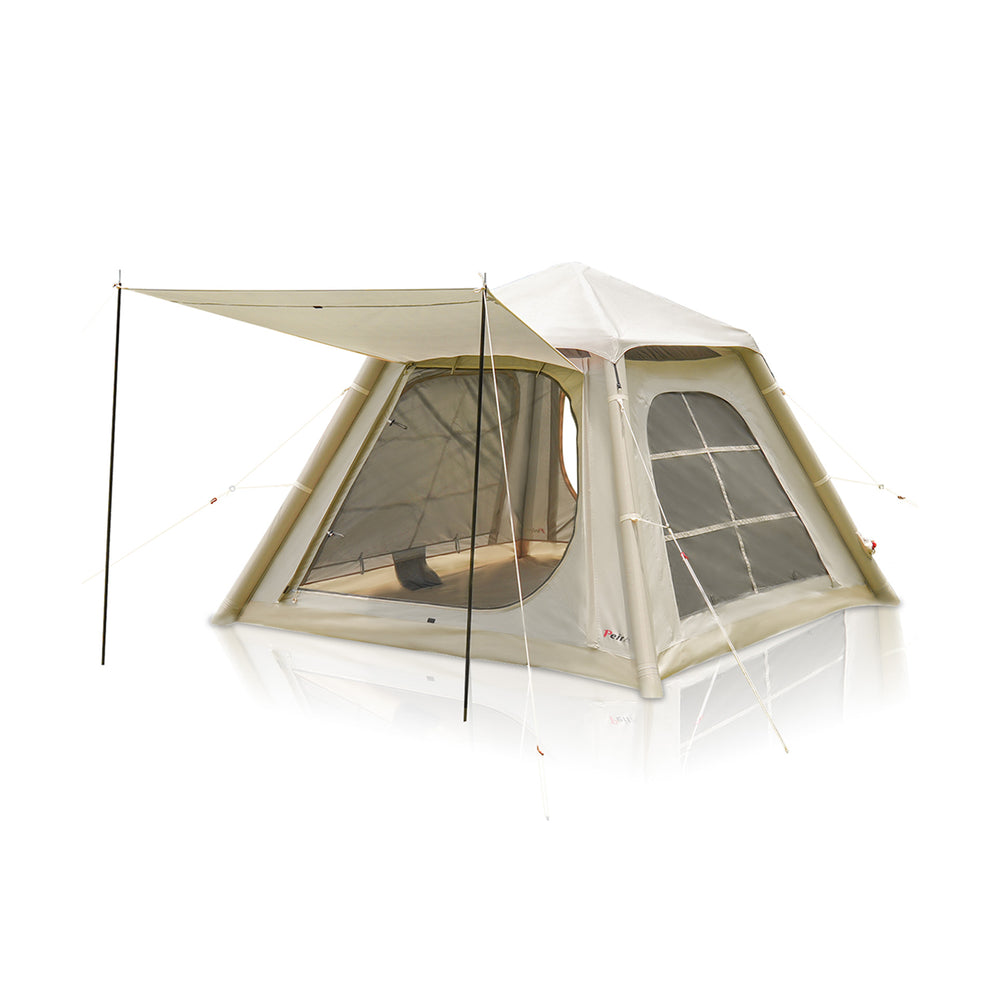
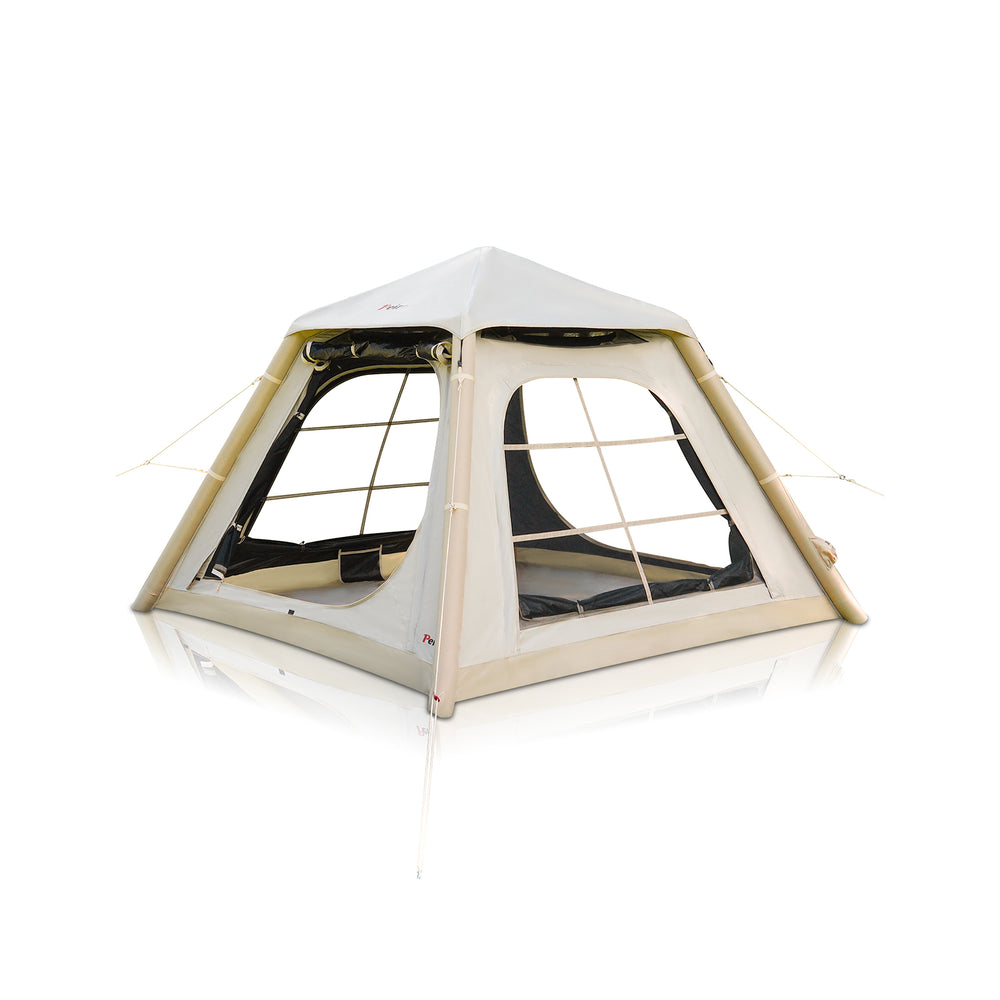
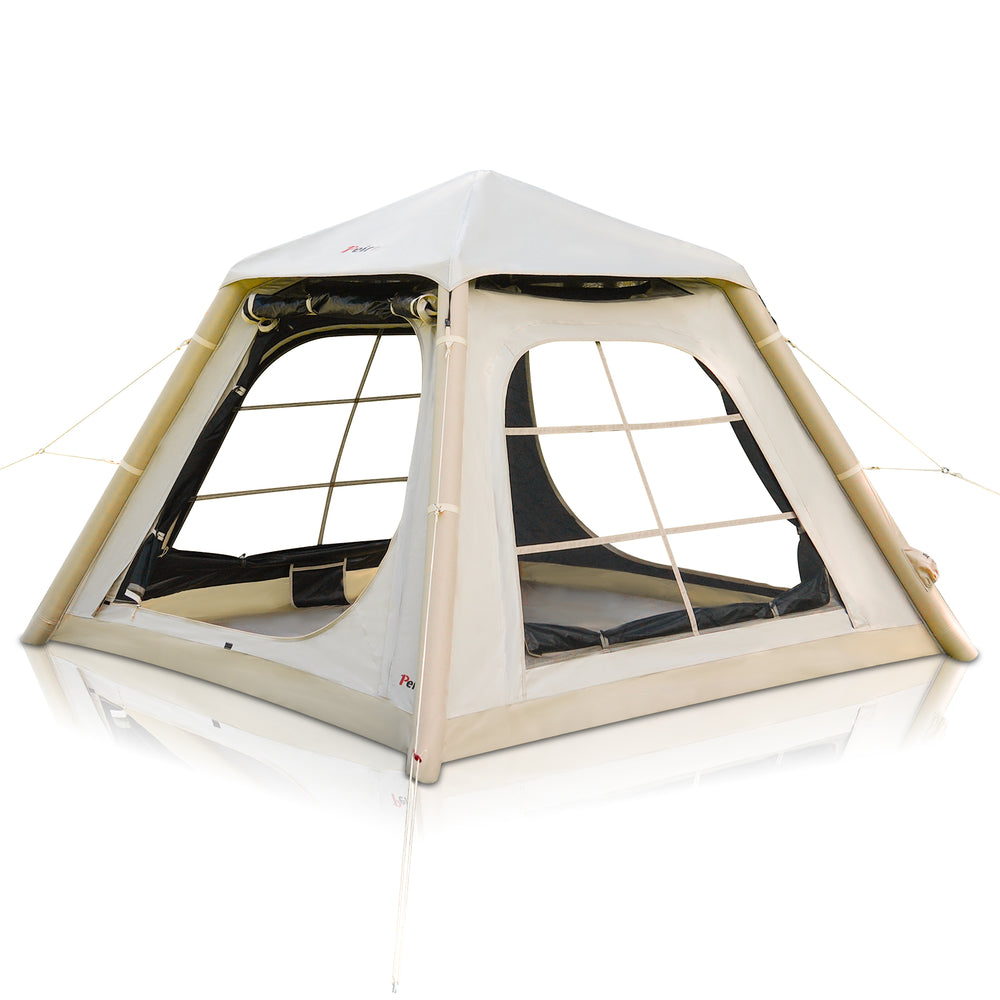
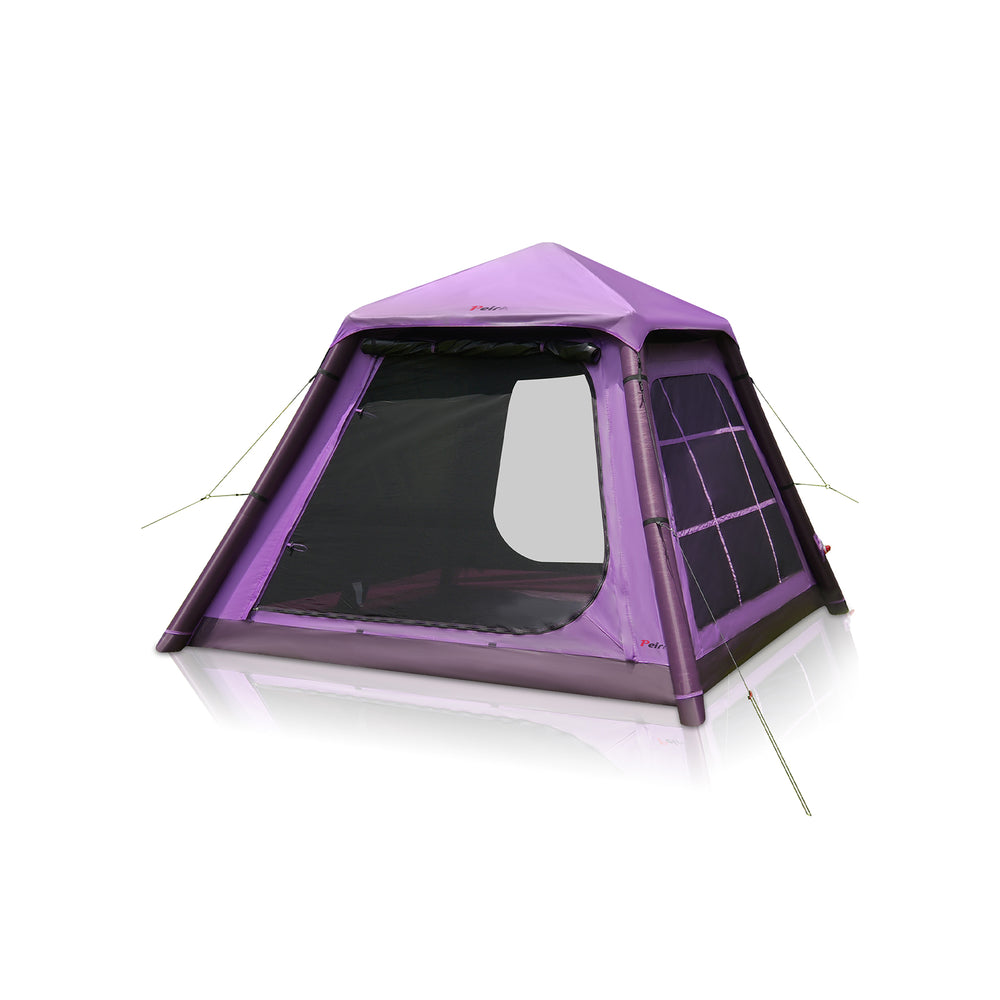


 Peirhw Inflatable House Tent - Starry Night Love
Peirhw Inflatable House Tent - Starry Night Love
 Peirhw Glamping Tents - Friendship Castle
Peirhw Glamping Tents - Friendship Castle
 Peirhw Inflatable Canopy Tent - Adventurer
Peirhw Inflatable Canopy Tent - Adventurer


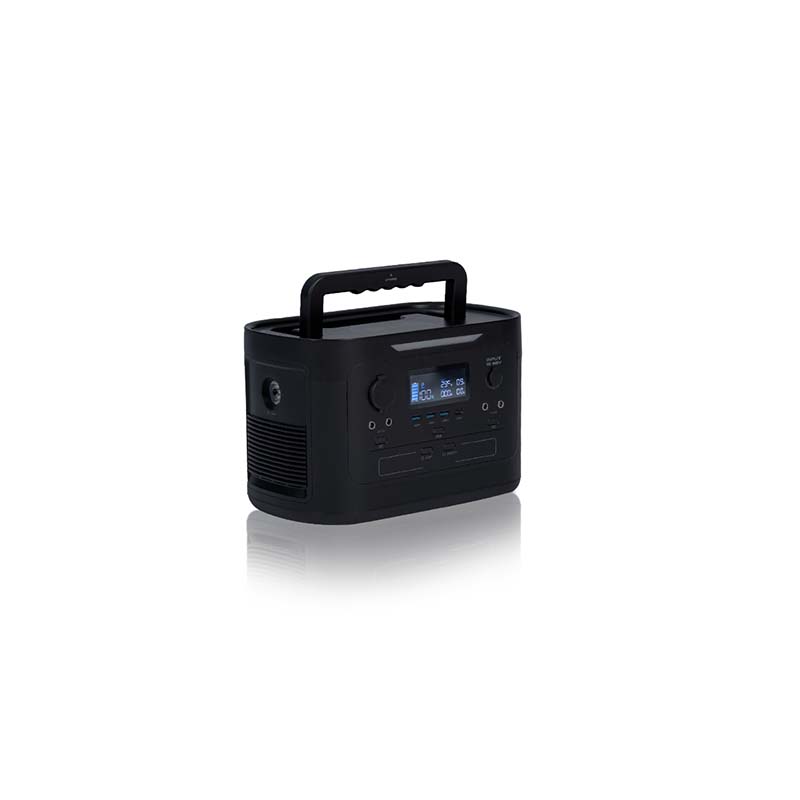
 Peirhw Portable Air Conditioner
Peirhw Portable Air Conditioner
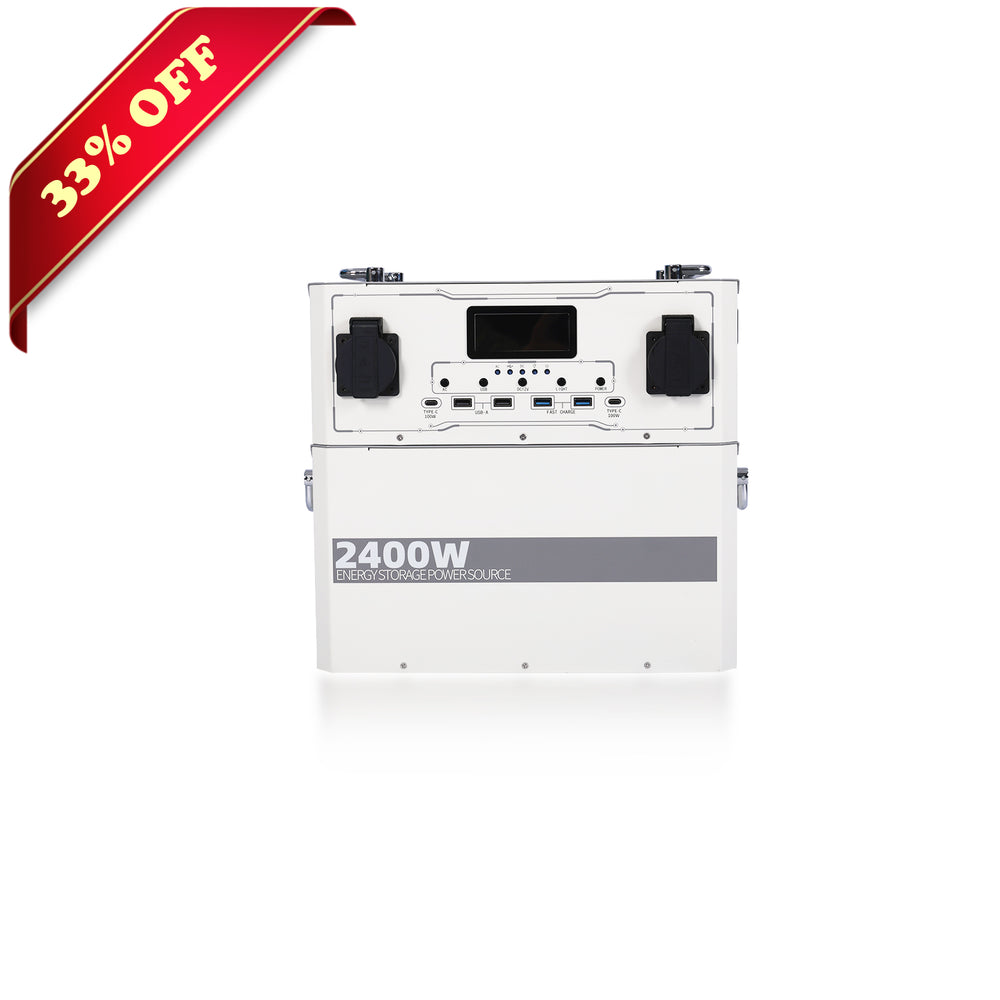 【Advance Sale】Peirhw Portable Power Station 2400W
【Advance Sale】Peirhw Portable Power Station 2400W
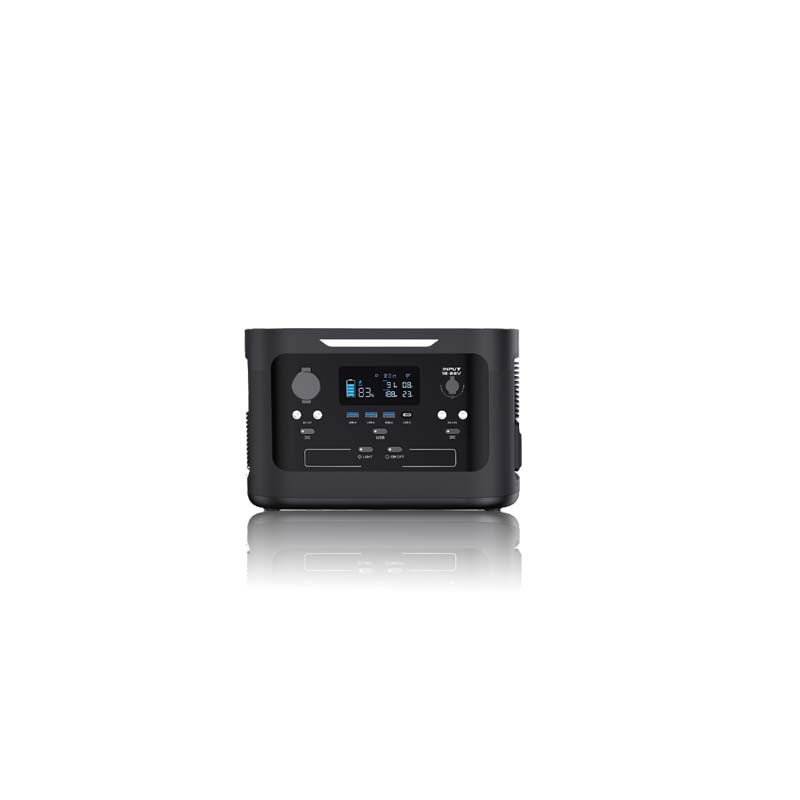 【Advance Sale】Peirhw Portable Power Station 600W
【Advance Sale】Peirhw Portable Power Station 600W

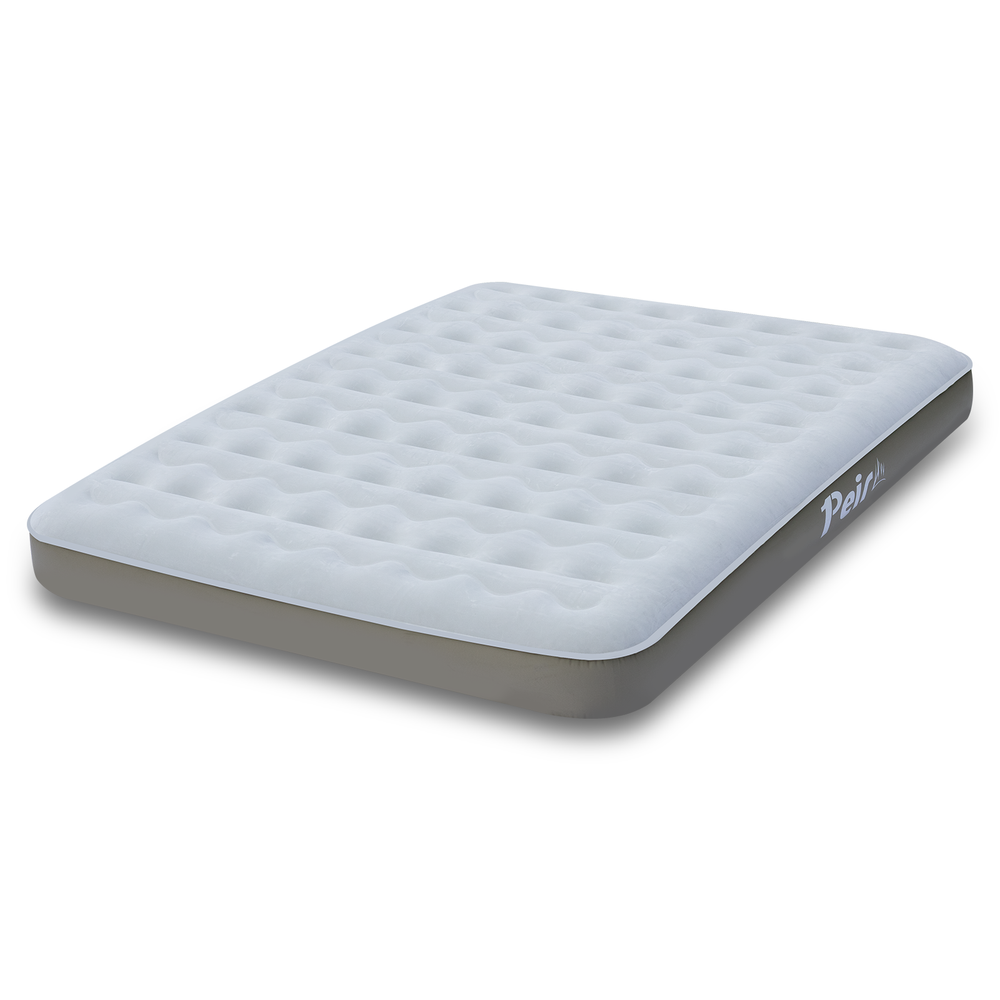



 Peirhw Self Inflating Sleeping Pad
Peirhw Self Inflating Sleeping Pad
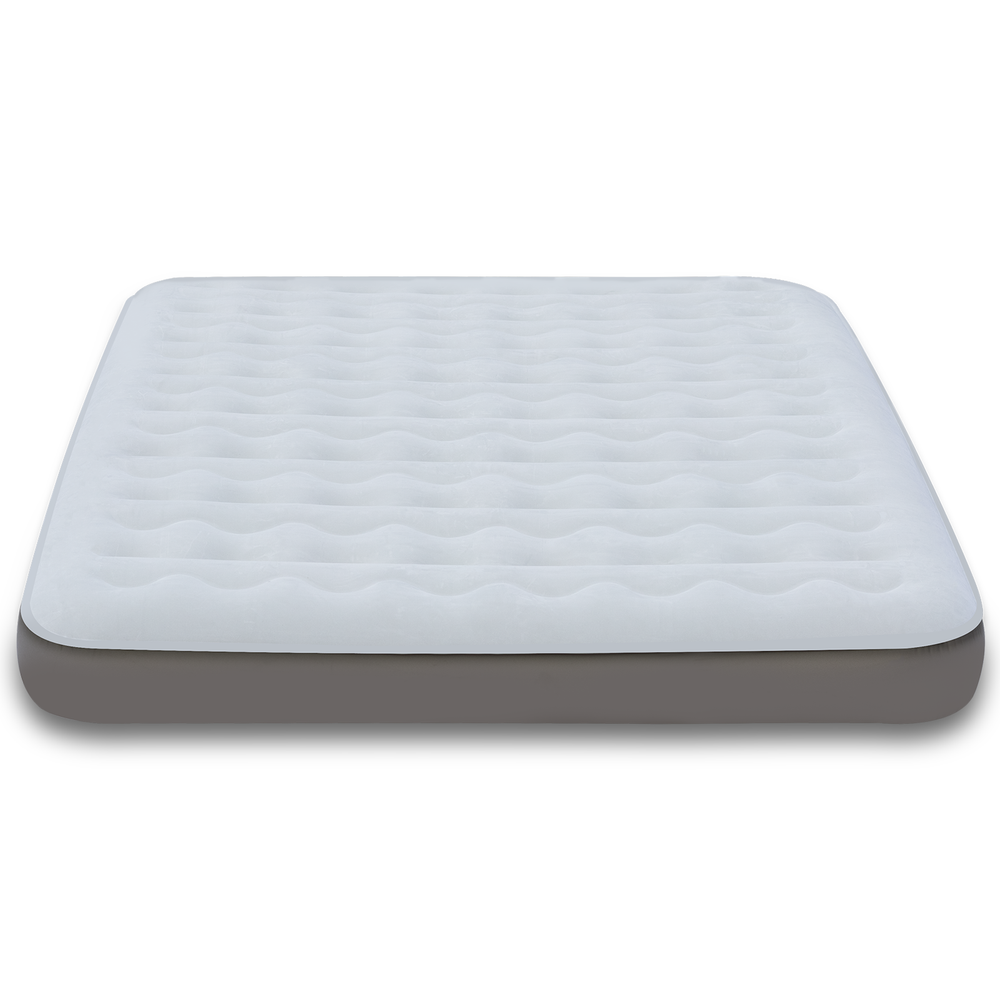 Peirhw Air Mattress (8" Queen Type)
Peirhw Air Mattress (8" Queen Type)
 Peirhw Camping Sleeping Bag
Peirhw Camping Sleeping Bag

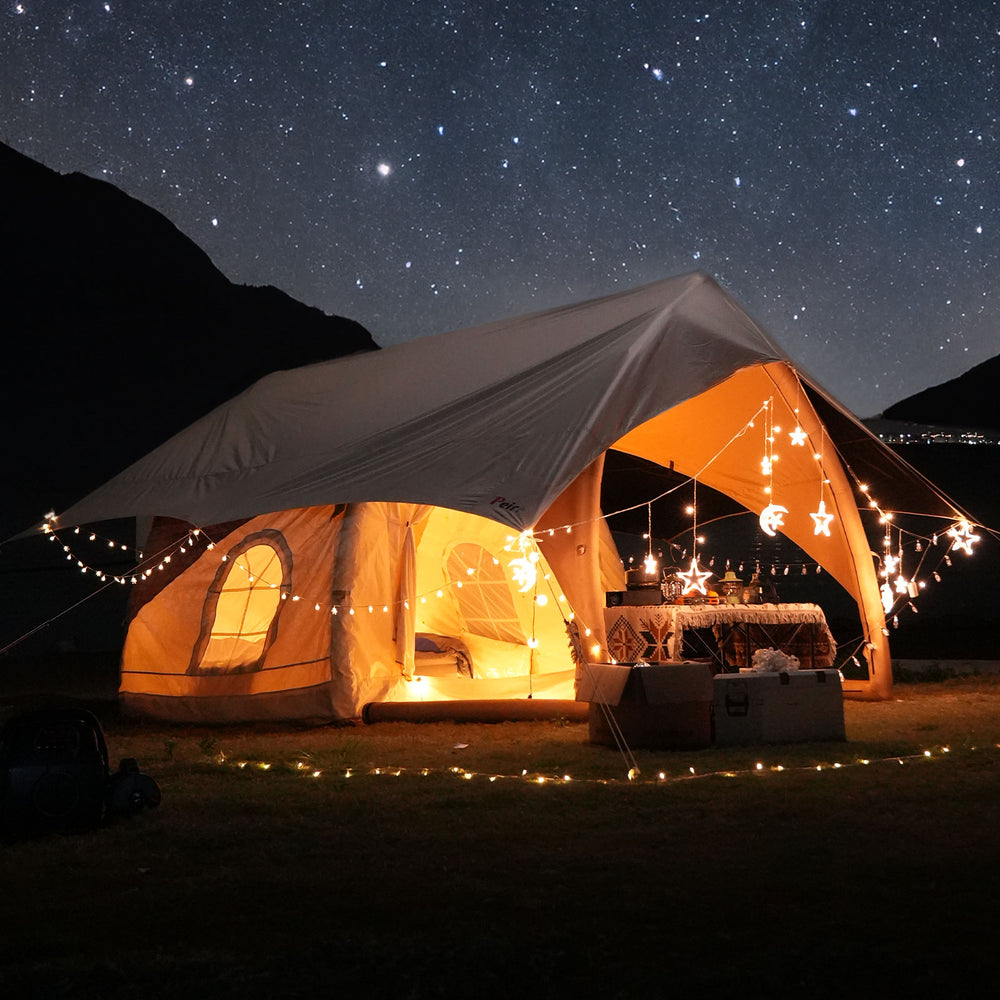
 Peirhw Butterfly-shaped Canopy for Camping
Peirhw Butterfly-shaped Canopy for Camping
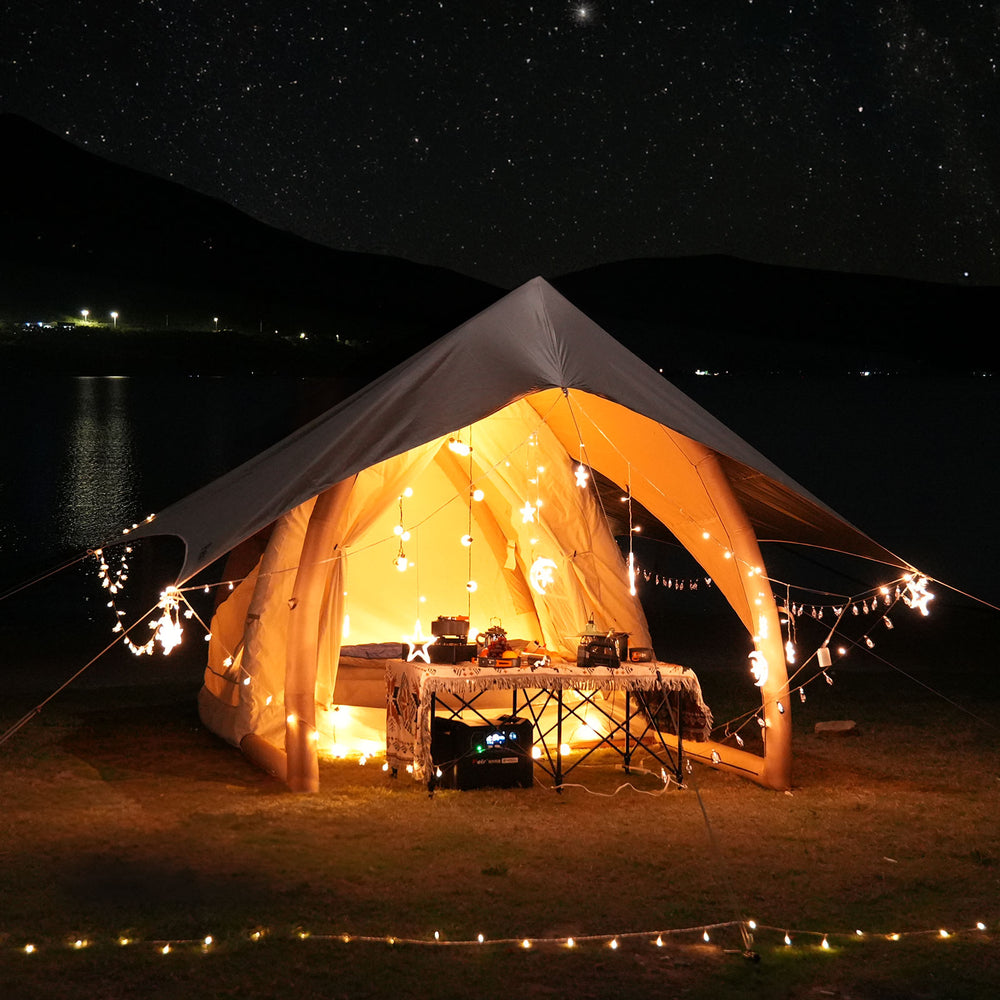 Peirhw Camping Waterproof Canopy (Cannot be Purchased Separately)
Peirhw Camping Waterproof Canopy (Cannot be Purchased Separately)

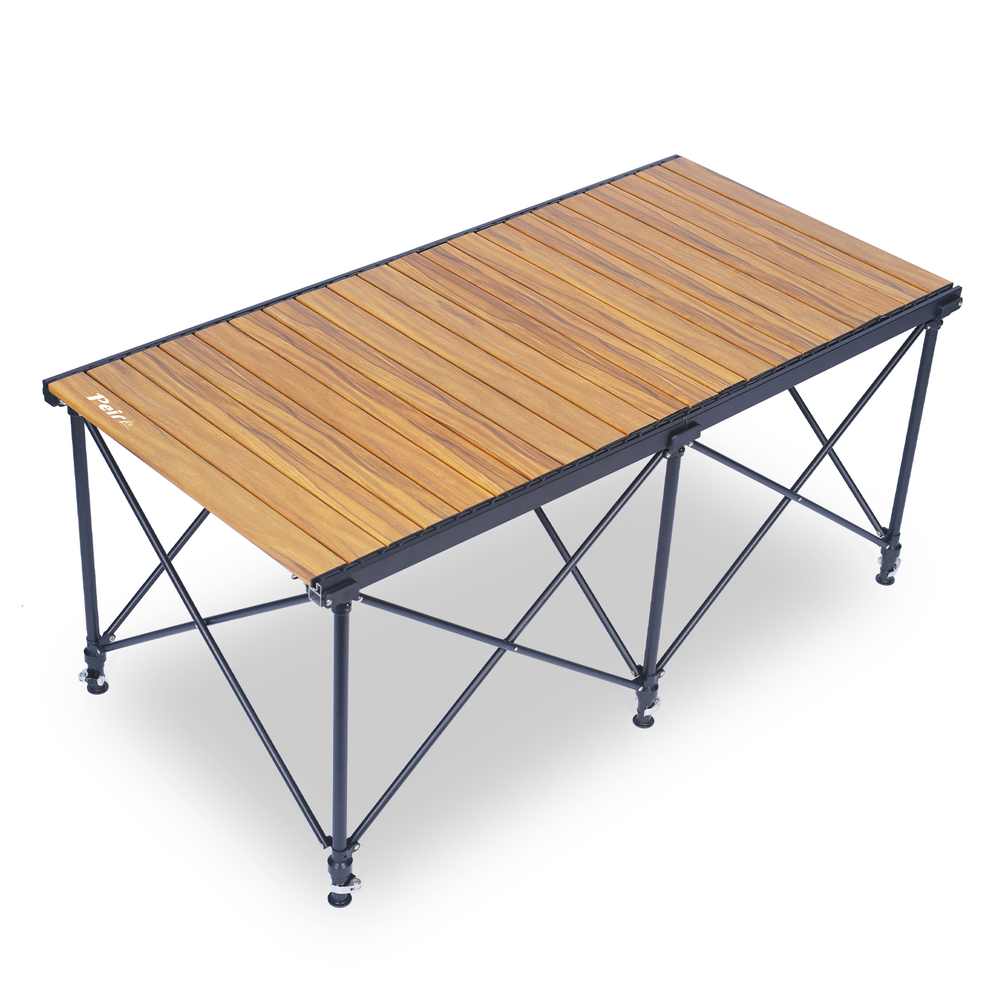
 Peirhw Outdoor Folding Chairs
Peirhw Outdoor Folding Chairs
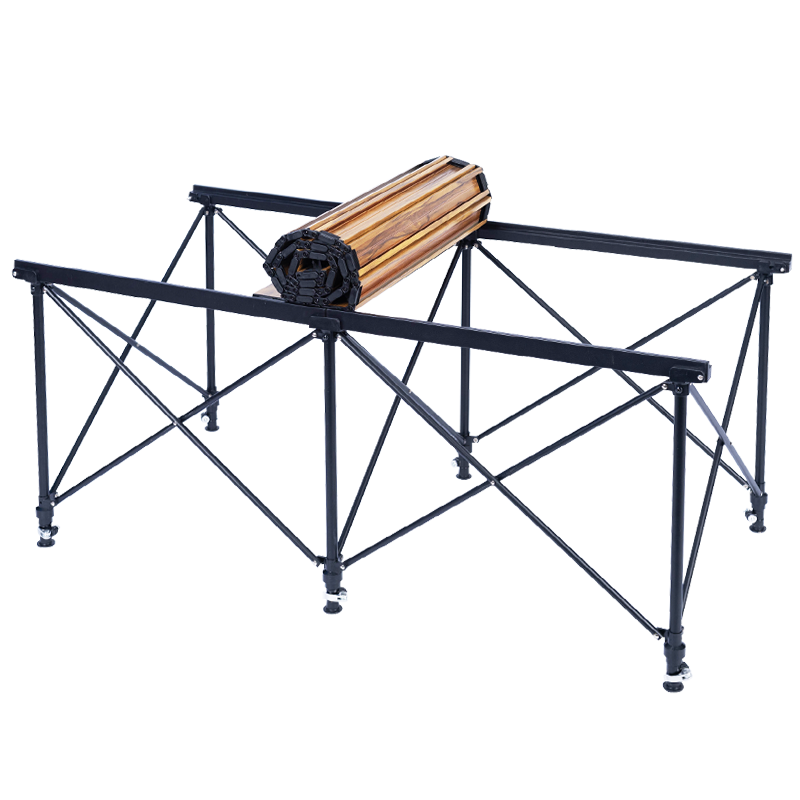 Peirhw Folding Camping Table
Peirhw Folding Camping Table



